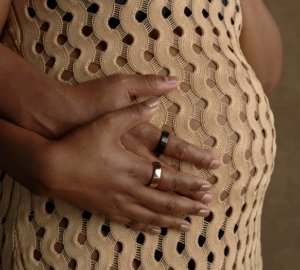At Oura, we focus on empowering our members to make more informed decisions about their everyday health by providing them with their own biometric data and personalized insights.
Reproductive health is an incredibly important facet of one’s overall health. While reproductive health has historically been underserved by medicine, science, and tech (among many other areas), it is among Oura’s top priorities. In light of the U.S. Supreme Court’s recent decision on Roe v. Wade, we remain steadfast in our support of women everywhere. We are more motivated than ever to do more in support of reproductive health while protecting data privacy.
Our Commitment to Reproductive Health
Reproductive health has and will continue to be a top priority and represents a category of significant investment at Oura. The Supreme Court’s decision only motivates us to drive innovation around reproductive health forward.
“Today, reproductive health research and apps like Oura’s are more important than ever,” says Neta Gotlieb, Ph.D., Lead Clinical Research Scientist at Oura. “It’s a devastating setback to hear calls for women in the U.S. to delete their cycle-tracking apps. Without these tools, women will not be able to accurately track their reproductive health, predict when their periods are coming, or know when their fertile window is.”
“We have only recently begun to include people with cycles in research and tech, and the directive to go back to the ‘calendar method,’ tracking cycles with pen and paper, or using emojis or code words instead of ‘period’ sends us backward even further,” Gotlieb adds.
Similar calls are being heard in the research community, which are also understandable but concerning for a different reason. Gotlieb notes: “As scientists become cautious or hesitant to collect sensitive physiological data for the privacy and safety of study participants, we will face inevitable implications of hindering scientific progress, decreasing innovation, and lessening inclusivity and diversity.”
Bottom line: Know you’re not alone. “If you’re feeling like the rug has been pulled out from under you, if you’re feeling demoralized, know that you are not powerless,” Gotlieb says. “Know that there is a team at Oura working for women and people with cycles, who sees you, who hears you, and truly cares. We will continue to listen to your wishes and needs and develop tools to support you. We are stronger together, and we’re just getting started.”
Oura’s Privacy Policy
We aim to make our privacy policy transparent, clear, and easy to understand. We want to assure you that Oura has technical and organizational safeguards to keep your data safe and secure. Where appropriate, these safeguards include measures such as anonymization or pseudonymization of personal data, strict access control, and the use of encryption to protect the data we process.
You can learn more in our privacy policies and terms of use. We will continue to ensure that our members’ privacy is protected and that they have full visibility into how their data is collected and used. You can read more about how Oura protects your data here.
“Our obligation is to protect our member’s data and privacy. As a company based in Finland, Oura is General Data Protection Regulation (GDPR) compliant, meaning that we have technical and organizational safeguards to keep members’ data safe and secure,” adds Tom Hale, CEO of Oura. “Furthermore, our team is currently reevaluating our privacy and security measures and working to strengthen them. Finally, Oura will oppose any request to provide legal authorities with access to user data for surveillance or prosecution purposes, and will notify users if we receive any such request.”
About the Oura Expert
Neta Gotlieb, Ph.D., is a Lead Clinical Research Scientist at ŌURA researching and developing solutions focused on women’s health. Her mission and passion is to solve challenges related to reproductive health and empower ŌURA users to make informed, data-driven decisions. Before joining ŌURA, she worked at a nonprofit organization as their Head of Volunteering Programs, but her passion for scientific discovery inspired her to pursue a career as a research scientist. Gotlieb received her Master’s degree from Tel Aviv University in Biological Psychology where her work focused on how stress impacts immune function. She then earned a PhD from UC Berkeley where she studied Reproductive Endocrinology and the circadian regulation of menstrual cycles, pregnancy, and birth. Outside of work, Neta enjoys hiking, biking, and spending time with her family. She lives in the Bay Area with her husband and two children.





